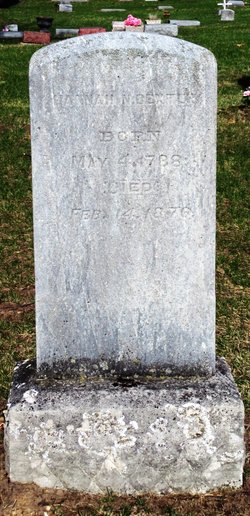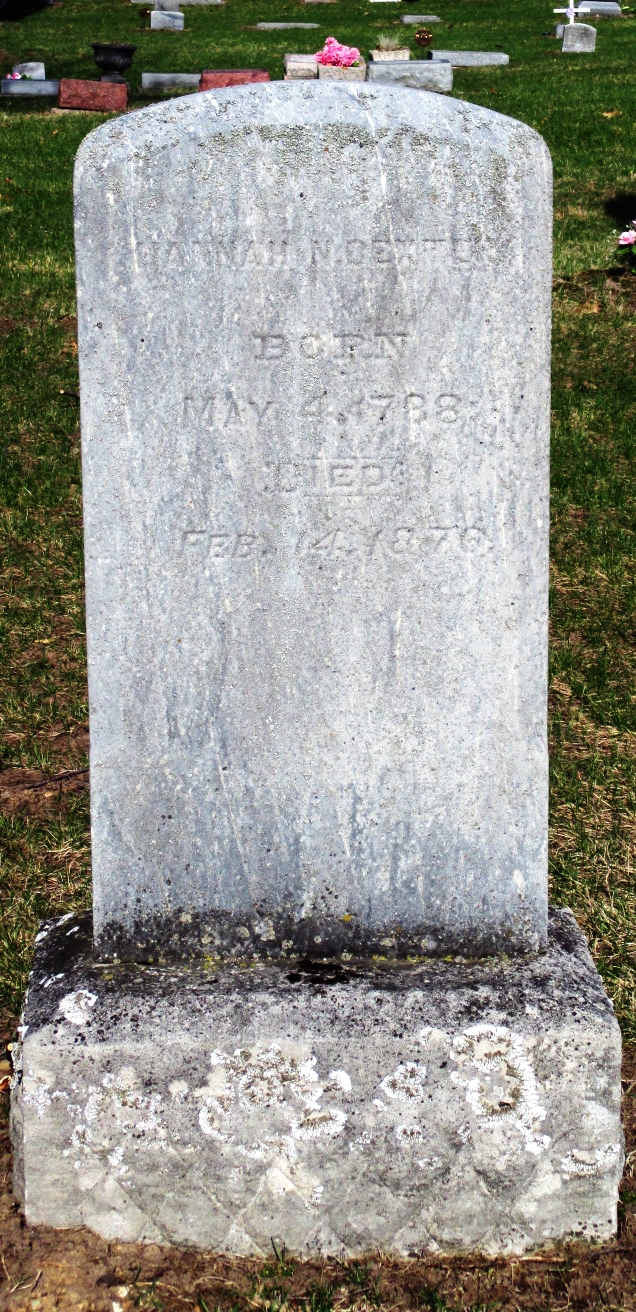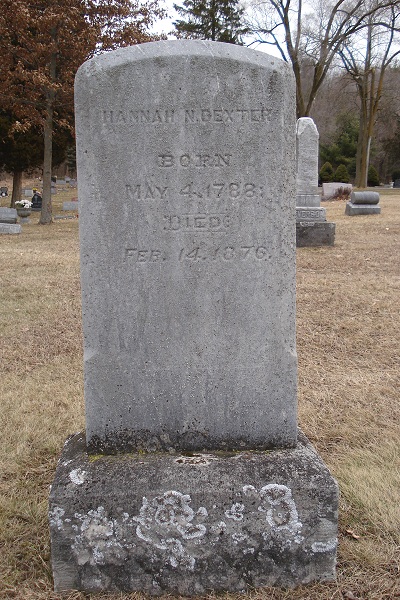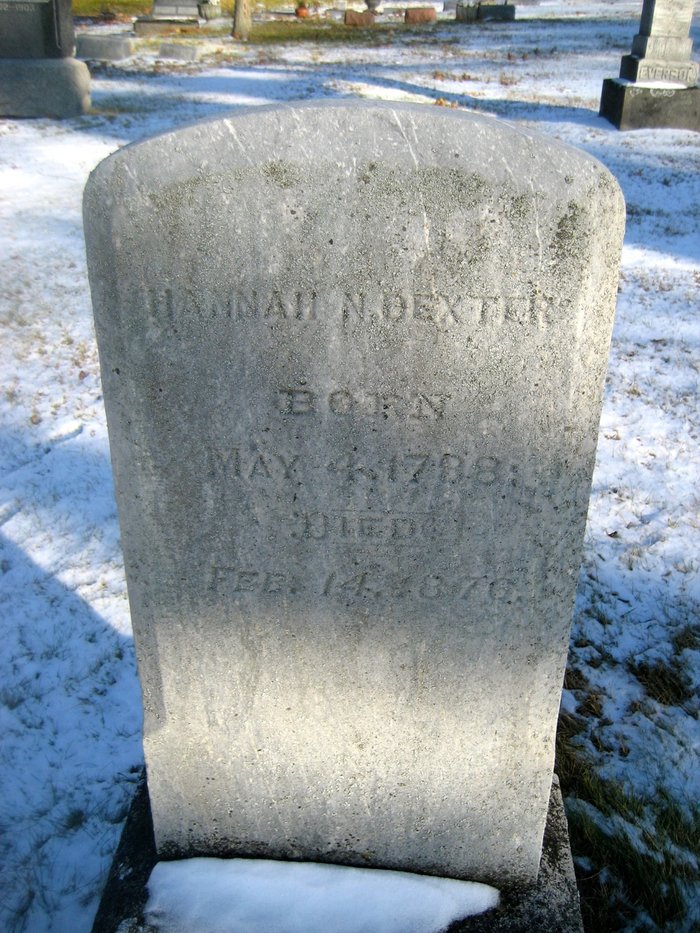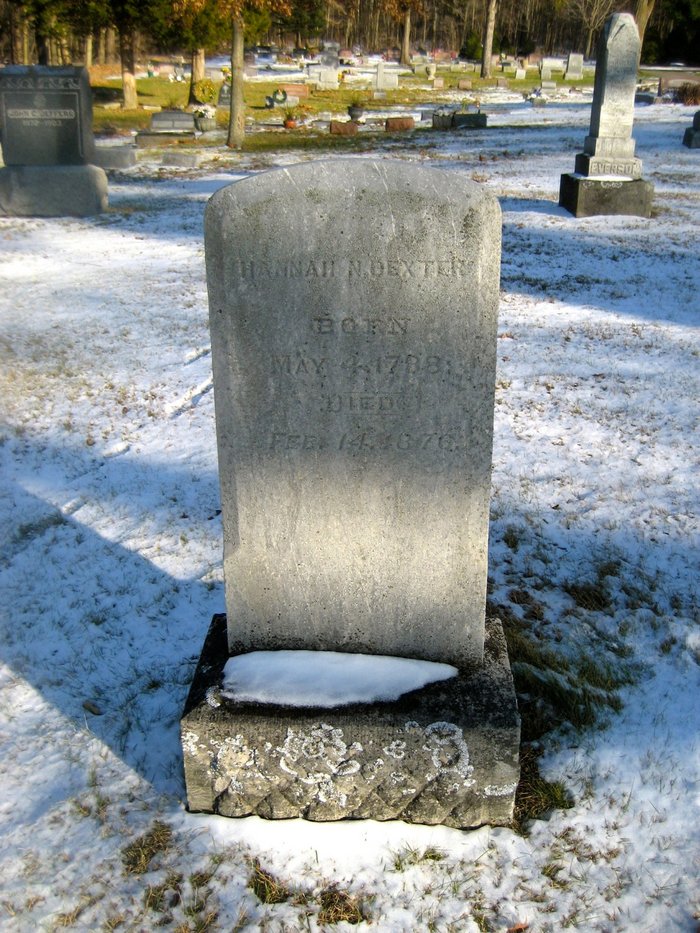Hannah and Horace are listed in the INDEX TO WAR OF 1812 PENSIONS, ST LAWRENCE, NY
Becasue of Horace's time in the War of 1812, Hannah was able to purchace 70 acres of land in Michigan uing the Script Warrant act of 1850.
Following written 1939 by her granddaughter, Martha Rhoba Barnes Mathews.
Well, I meant to start this yesterday as it was my 95th birthday. My son (Lucius Plin Mathews) has often told me he wished I could write down the changes I can remember that I know of during my life and as I lie thinking at night I think of so many changes some that are pleasant and some that are very unpleasant but does that not occur in the life of every one telling it as a story or otherwise.
Of course I really am obliged to write down incidents I am not personally only knowing to but is not that the way with Life?
I've been taught I was born in the State of Ohio, town of Hinckley, Medina County on April the 9th, 1844 and when I was a tender age of four months, my folks and a little brother, (Isaac Carlos Barnes), two years older than I started for the then called New Country Michigan, it was at that time indeed a new country. I'll now tell you about their conveyance, also about the family. There was my grandmother (Hannah Dexter), my mother (Keziah Almira Dexter Barnes), my aunt Fidelia (Wilson), aunt Hannah (Dexter), Aunt Sarah (Dexter), my father (Lucius Atwater Barnes), uncle George (Dexter), uncle Isaac (Dexter), their conveyance as a yoke of oxen, one horse and a cow. But dear aunt Euretta (Dexter), I almost forgot her.
Now, I think I best tell you about their trip from Ohio to Michigan. There were six of the women, four men and two little children. Well my grandma had to ride the wagon drawn by the oxen. She took the most of the care of the two little children. The other women walked or sometimes took turns riding the horse but as there was only one horse they got very little ride and a great part of the time had to be spent letting the oxen, horse, and cow eat as they had to pick their own feed only for a very little grain they took with them. Then while the stock were feeding, the folks were building fires getting wood and water and food ready to supply their hunger. They would cook twice a day about 10 and again about three. They made bread and baked it by coals in the Dutch oven as they were called in those days and I well remember the Dutch ovens as years after we had neighbors who cooked in one of those ovens and made just as good bread and cake as they do now. Maybe not so nice to look at, but just as satisfying to the hungry stomachs. Sometimes there would be milk so those that wanted it could have bread and milk. I've heard my mother tell about how my grandma would lay a slice of bread on a plate then pour mild enough on to wet the bread then tell the folks to come and have some bread and milk. This was while they were crossing Maumee Swamp. One time some of the men folk found a patch of cow-slip greens (a marsh marigold, used as a herb) and then they did have a feast. They were all so fond of cow-slip greens. They had a hard time while crossing the Maumee swamp a good deal of the way it was mud and they had to be so careful where they drove not to get into the mire but they all kept well and my mother said they seemed to enjoy it – only they had heard that there were a band of unfriendly Indians they were liable to meet. But my father soon done a lot toward quieting their fears as to the unfriendly Indians. He had been among them so much that he had no fear of an Indian and my mother should not, but she could not get used to them as my father did.
Hannah and Horace are listed in the INDEX TO WAR OF 1812 PENSIONS, ST LAWRENCE, NY
Becasue of Horace's time in the War of 1812, Hannah was able to purchace 70 acres of land in Michigan uing the Script Warrant act of 1850.
Following written 1939 by her granddaughter, Martha Rhoba Barnes Mathews.
Well, I meant to start this yesterday as it was my 95th birthday. My son (Lucius Plin Mathews) has often told me he wished I could write down the changes I can remember that I know of during my life and as I lie thinking at night I think of so many changes some that are pleasant and some that are very unpleasant but does that not occur in the life of every one telling it as a story or otherwise.
Of course I really am obliged to write down incidents I am not personally only knowing to but is not that the way with Life?
I've been taught I was born in the State of Ohio, town of Hinckley, Medina County on April the 9th, 1844 and when I was a tender age of four months, my folks and a little brother, (Isaac Carlos Barnes), two years older than I started for the then called New Country Michigan, it was at that time indeed a new country. I'll now tell you about their conveyance, also about the family. There was my grandmother (Hannah Dexter), my mother (Keziah Almira Dexter Barnes), my aunt Fidelia (Wilson), aunt Hannah (Dexter), Aunt Sarah (Dexter), my father (Lucius Atwater Barnes), uncle George (Dexter), uncle Isaac (Dexter), their conveyance as a yoke of oxen, one horse and a cow. But dear aunt Euretta (Dexter), I almost forgot her.
Now, I think I best tell you about their trip from Ohio to Michigan. There were six of the women, four men and two little children. Well my grandma had to ride the wagon drawn by the oxen. She took the most of the care of the two little children. The other women walked or sometimes took turns riding the horse but as there was only one horse they got very little ride and a great part of the time had to be spent letting the oxen, horse, and cow eat as they had to pick their own feed only for a very little grain they took with them. Then while the stock were feeding, the folks were building fires getting wood and water and food ready to supply their hunger. They would cook twice a day about 10 and again about three. They made bread and baked it by coals in the Dutch oven as they were called in those days and I well remember the Dutch ovens as years after we had neighbors who cooked in one of those ovens and made just as good bread and cake as they do now. Maybe not so nice to look at, but just as satisfying to the hungry stomachs. Sometimes there would be milk so those that wanted it could have bread and milk. I've heard my mother tell about how my grandma would lay a slice of bread on a plate then pour mild enough on to wet the bread then tell the folks to come and have some bread and milk. This was while they were crossing Maumee Swamp. One time some of the men folk found a patch of cow-slip greens (a marsh marigold, used as a herb) and then they did have a feast. They were all so fond of cow-slip greens. They had a hard time while crossing the Maumee swamp a good deal of the way it was mud and they had to be so careful where they drove not to get into the mire but they all kept well and my mother said they seemed to enjoy it – only they had heard that there were a band of unfriendly Indians they were liable to meet. But my father soon done a lot toward quieting their fears as to the unfriendly Indians. He had been among them so much that he had no fear of an Indian and my mother should not, but she could not get used to them as my father did.
Family Members
Advertisement
Advertisement
